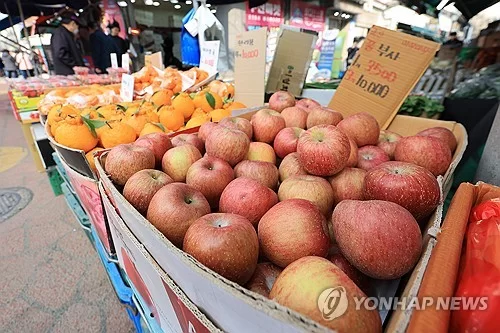South Korea has recently confronted the stark reality of soaring food prices, consequent to global inflation, rising cost of labor, and weather-related challenges, impacting individuals, families, businesses, and the economy as a whole.
With the rise of the inflation rate up to 3.6% compared to that of last year, the price hikes have been particularly pronounced across various food items. Volatile food items like milk, fruits, and vegetables experienced a substantial increase along with various fruits and vegetables. Among those, apples had one of the biggest price increases of 72.4% this year.
Substantial increase in food prices has been a challenge for the overall public; it has been burdensome, especially for the low-income population who rely on affordable food items to meet their basic needs. Furthermore, small businesses in the food industry are also struggling with increased operating costs.
“I have frequently seen news reports addressing the issue of food prices going up,” Adelyn Yim (10) said. “When I go to restaurants to eat, I can definitely see food prices increasing, even in fast-food restaurants, as well as an increase in food prices in markets.”
In response to this crisis, the government has announced plans to launch a task force to manage the food prices and reduce the negative impact on the livelihood of the public. This measure aims to work out the immediate challenges posed by rising food costs and ensure the stability of the food market for all segments of society.


